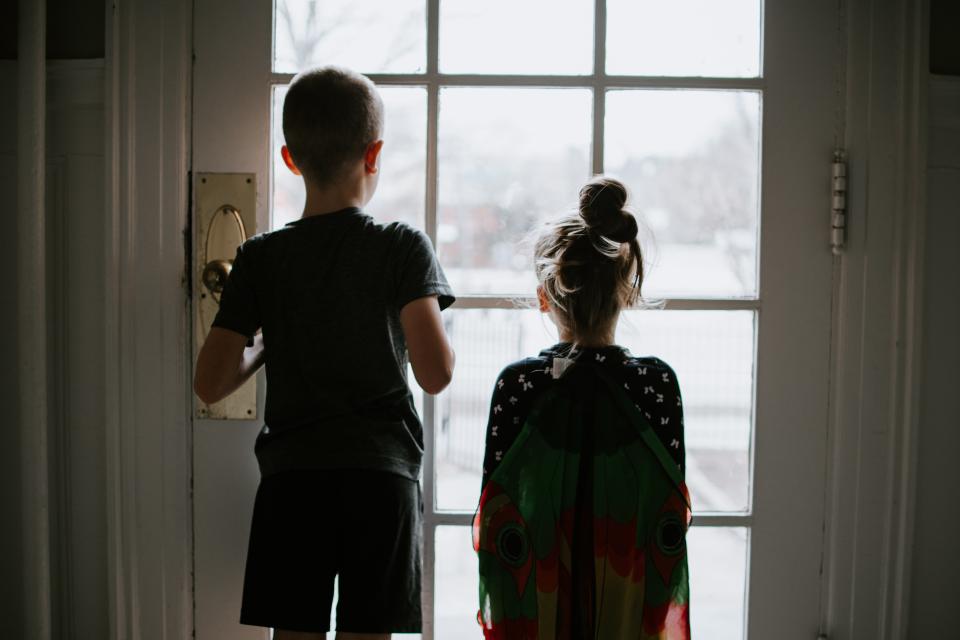“Stuck at home”
stuck: “mired, glued, compelled, resolutely adhered, halted, saddled disagreeably”
home: “one’s place of residence, domicile, habitat”
How very good and pleasant it is
when kindred live together in unity! (Psalm 133:1)
A bevy of new and resurrected words and phrases have pinned themselves to the pandemic elephant, who has been rampaging through our terminological garden the past 12 months. Here are ten of my favourites:
1. Covidiot – someone unwilling to follow Covid rules
2. Coronaspeck (or Kummerspeck): “grief bacon” - the German expression for the belly fat we’ve gained from emotional eating during lockdown
3. Coronials – babies born since lockdown, like our grandbaby twins.
4. “You’re on mute!”
5. Quarantini (check out its health claims)
6. Zoom bombing
7. Patient zero
8. Self-quarantine
9. Hamsterkauf: another German term, this one for frantic buyers/hoarders
10. Stuck at home
The 2020 meme “stuck at home” preoccupies me at the moment, for what it signifies. “Stuck at home” has gained a particular usage and meaning during the pandemic. What might “stuck” mean, attached to “home?” Four strands of “stuckness” come to mind.
1. Online creatives and fidgeters have produced a raft of “stuck at home” repairs, toys, songs, courses, meditations, poems, lists, podcasts, games, workouts, recipes, crafts, and Hygge projects.
2. “Stuck at home” can also point to a deeper unhappiness, where the phrase reeks of resentment, or worse. If for a moment we imagine lockdowns both local and global, not all are innocuous, boring, or inconvenient. Someone may have good reason to resent, fear, or loathe where she lives; it may be a stretch to call her place “home.”
• Stuck at home with one’s abuser
• Stuck at home in a single room with one’s eight slum housemates
• Stuck at home in the house of one’s master
• Stuck at home under the thumb of reviled authority
Too many “stuck at home” stories are stories of hardship and oppression, sharpened to lethal force by the pandemic, and weaponized by power with malevolence.
3. But a third genre of “stuck at home” storytelling brings to mind that wise homebody, Wendell Berry. In “The Work of Local Culture” he writes this:
I was walking one Sunday afternoon several years ago with an older friend. We went by the ruining log house that had belonged to his grandparents and great-grandparents. The house stirred my friend’s memory, and he told how the oldtime people used to visit each other in the evenings, especially in the long evenings of winter. There used to be a sort of institution in our part of the country known as “sitting till bedtime.” After supper, when they weren’t too tired, neighbors would walk across the fields to visit each other. They popped corn, my friend said, and ate apples and talked. They told each other stories. They told each other stories, as I knew myself, that they had all heard before. Sometimes they told stories about each other, about themselves, living again in their own memories, and thus keeping their memories alive. Among the hearers of these stories were always the children. When bedtime came, the visitors lit their lanterns and went home. My friend talked about this, and thought about it, and then he said, “They had everything but money.”
This is not just nostalgic musing by a fine narrator. Berry points to the essence and practice of “home” as local, place-based, and neighbourhood rooted. Here “stuckness” is a pattern, an intentional practice, and rooted in the recognition of home as ancestral place. Home is the land – urban or rural – where your boots, sweat, stories, and relationships are planted.
4. In that sense, Wendell Berry would have us incline an ear to hear those “stuck at home” around us. What truths does the “stuck at home” refrain reveal about our long-term distancing? Is this only a cry for escape from the virus’s confines, or a cry for a more profound belonging in place? Does this sense of “stuckness” reflect a failure culturally and spiritually – for years prior to the pandemic – to dig deeply into this place, this soil, this watershed, this neighbourhood?
Identity politics of all sorts have eroded the idea and practice of the common good. Hence the decline of our communal structures of meaning, in the neighbourhood, church ,and at home. The resulting generational restlessness to be “unstuck from home” now combines with the pandemic’s restrictions, and may be exposing a creeping malaise that long preceded this novel coronavirus. One can have four walls and a roof, and still be homeless – ecologically, spiritually, and socially. And this sort of homelessness – living in a location without the spiritual commitment to place, land, and community connections – will succeed beyond this public health emergency and its lockdowns. The pandemic has exposed the bareness of our local roots, as the ultimate measure of our resilience.
About
David Kupp is Professor of Pastoral Theology at Wycliffe College.





